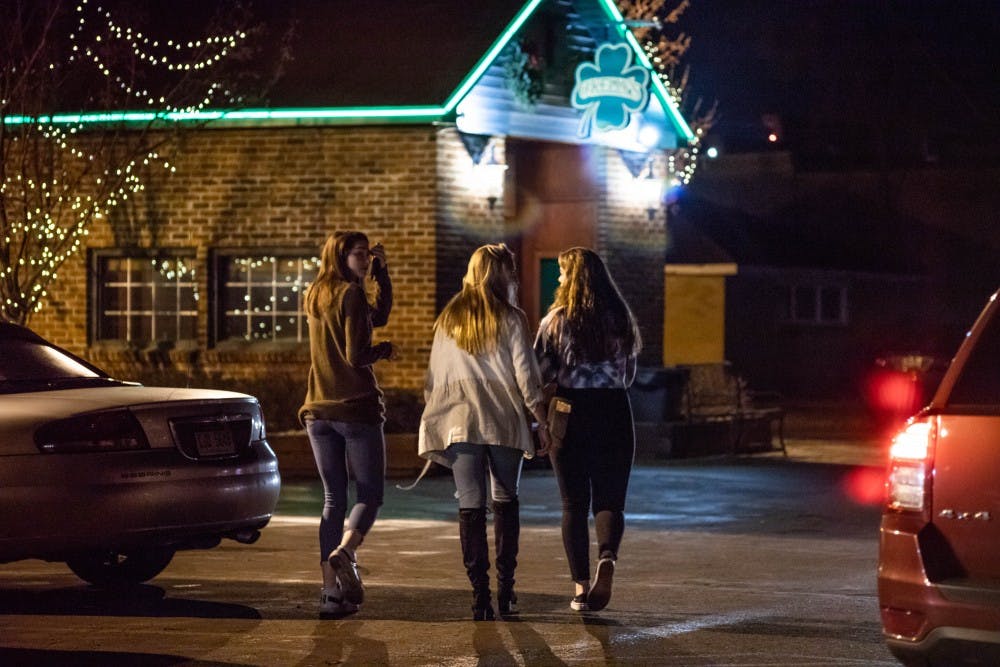Hypothermia poses fatal risk for intoxicated people
College students are constantly warned about the dangers of binge-drinking and the importance of getting home safely after a night of drinking.
However, many students aren't aware of the potentially dangerous combination of drinking and cold temperatures, which can result in hypothermia.
Drinking alcohol makes a person's body feel warm, when in reality their body temperature might be dropping. Jennifer Trypkovski, Central Michigan University's head team physician and medical director of athletics, said this is because alcohol dilates the body's blood vessels and lowers the core temperature.
"It's a myth that alcohol warms you up," Trpkovski said. "Just because you feel warm doesn't mean your core temperature is warm. In fact, it's probably lower."
From 1999 to 2011, 16,911 people in the U.S. died from hypothermia, according to Centers for Disease Control and Prevention. In 2015, there were more than 800 hypothermia deaths.
Hypothermia is caused when a person's body loses heat faster than it’s produced when exposed to cold temperatures, which eventually results in a lowered body temperature. A body temperature that is too low negatively impacts the brain and makes the person unable to think clearly or move easily.
Hypothermia is dangerous because a person might not realize what's happening to the them and won't be able to help themselves, especially if that person is intoxicated.
Trpkovski said alcohol also inhibits a person's ability to shiver, which is how a body keeps itself warm. This is another risk for students when they go out drinking in the cold, particularly if they aren't dressed warmly.
In January 2014, The Morning Sun reported 18-year-old Alma freshman Sean Murawske was found dead in a field two days after he was last seen leaving a fraternity party around 1:30 a.m. He was not wearing a jacket. The autopsy reported he died from hypothermia, and his blood alcohol level was .115.
Michael Doherty, a 20-year-old Duke University student, was last seen leaving a party in Massachusetts in the early hours of May 14, 2017. ABC 11 reported that he was walking home alone in the pouring rain. His body was found in the woods near his home and the autopsy reported he died from hypothermia.
Central Michigan Life reported that in October 2014, 18-year-old Michael Hartnett's body was found in the Fabiano Botanical Garden pond. Although drowning was the cause of his death, the medical examiner determined Hartnett drowned after becoming submerged in the pond "while intoxicated in cold weather."
CMU Police Department's Lt. Cameron Wassman said hypothermia is a serious potential danger students face in the cold temperatures.
Wassman recommends drinking responsibly so your judgment doesn't become impaired and to stick with a reliable group of people when drinking.
"Rely on your friends. Go out with a group and leave with that group. Make sure nobody is left behind," Wassman said.
Trpkovski said that while there are definite symptoms of hypothermia, they are unfortunately very similar to symptoms of intoxication, which is what can make the situation very dangerous. However, if a person's speech is slurred and they aren't making sense, any of their extremities are blue or they're experiencing any numbing or tingling, you need to seek emergent help, Trpkovski said.




